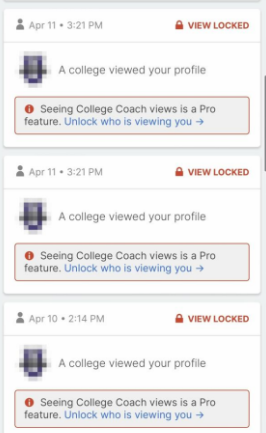Before I came out, I used to play football

Illustration Provided by Michael Purdie
Editor-in-chief Michael Purdie describes his experiences of playing football when he was younger.
November 14, 2017
Yes, you read that correctly. I, Michael Purdie, your average gay, used to play the masculine sport of football.
But I didn’t just play football for a matter of days or weeks, I played for four years. I even played on the JV team my freshmen year.
Why did I stop? For starters, I have the body of a 60-year-old man— all of my joints dislocate when I try doing simple tasks. Also, I have more important things to focus on, such as work and academics, especially considering I was the first string bench-warmer. And of course, some, but not all, of the team was quite homophobic, and they didn’t take a particular liking towards me.
But there’s a more important question that needs to be asked: Why did I start? Well, that’s a very complicated and loaded question, but— to answer it in the simplest way that I can— it’s because I felt like I had to.
I want to preface this by saying that no one forced me to. I have the most supportive and accepting parents in the world; they would never make me do something that I didn’t want to do.
I grew up in a household with three older brothers. Three athletic older brothers. However, being the unknowingly closeted child that I was, I was much more focused on art and academics.
I saw my brothers excel in athletics, so I just assumed that it was expected of me to play sports. And considering that I was heavy and wanted to take out my anger directed towards my brother, I decided the hard-hitting sport of football was perfect.
It was not perfect.
I never enjoyed playing football, but I did it for a full four years because I thought that I had to.
I initially played so I could try to be masculine. It is no secret that I’m not “manly;” however, this does not mean that I’m not tough, and that’s what we need to understand.
I figured that maybe if I played football, people would think that I’m more masculine than I am.
But is being more masculine a good thing?
As things are becoming more acceptable for women, parents are afraid that the same will happen to their young boys, so masculinity is being enforced onto teens now more than ever.
I was lucky. My parents wanted me to express myself in the ways that made me feel comfortable. But in school, people always said I acted “girly.”
I was happy, so what’s wrong with being feminine?
We shouldn’t be told to act one way or another. We should be able to express ourselves in the ways that make us feel happy.
I learned this lesson too late in life. I finally came out two years ago, and last year I started cuffing my jeans and dressing in other ways that make me feel most me.
And I know I’m not the only boy that feels like he has to be masculine. Guys don’t want to admit it, but we have emotions, too. We’re told to stop “crying like a girl,” but in reality, it’s OK to show your emotions. Otherwise, you’ll bottle them up, and unhealthy coping mechanisms will surface.
Boys and girls shouldn’t be told that expressing themselves in ways that makes them happy isn’t acceptable.
I guess the answer isn’t really as complicated as I thought: be who you are, and be happy with that person.






